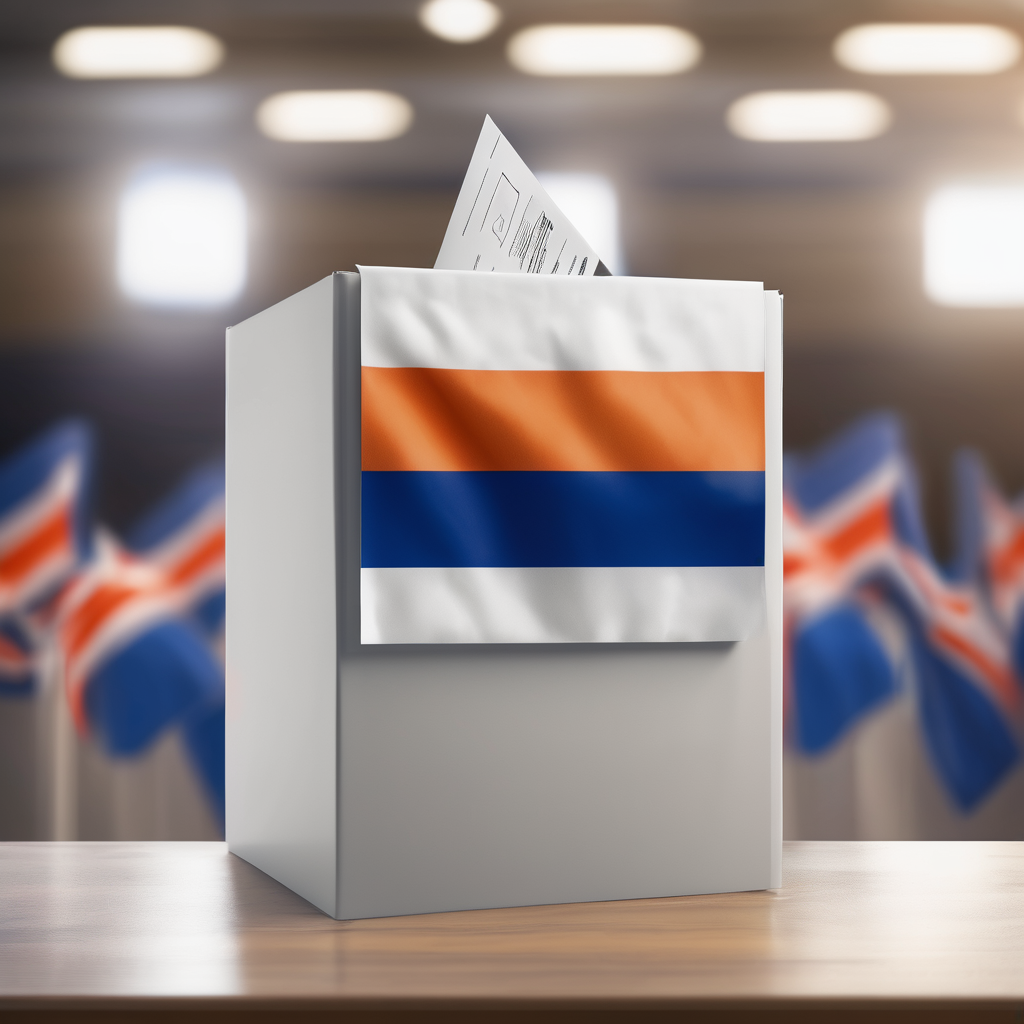Voting is currently taking place in the highly competitive parliamentary elections in the Netherlands, where polls indicate a potential victory for the far-right Freedom party (PVV) led by Geert Wilders, although its chances of joining the next government remain slim.
The PVV, which shocked the political landscape by finishing first in the last elections, has seen its once considerable lead dwindle rapidly. Recent polling averages suggest that Wilders’ party could secure between 24 and 28 seats in the 150-seat parliament, a significant drop from the 37 seats it won in 2023. Despite the possibility of finishing first again, all major political entities have dismissed the idea of forming a government with Wilders, who has made a name for himself with his extreme anti-immigration stance.
Wilders previously terminated the outgoing government in June, less than a year after it was formed, due to his coalition partners’ refusal to support his contentious anti-refugee proposals, which many viewed as unfeasible or illegal.
During a campaign largely focused on migration, healthcare, and the country’s serious housing crisis, mainstream parties have significantly reduced the PVV’s early advantage. “It’s up to the voters today,” said Wilders after casting his vote in The Hague, flanked by security due to the years he has spent under police protection. He emphasized the tight race, indicating competition among four or five parties.
The leading contender opposing the PVV is the centre-left Green Left/Labour party alliance (GL/PvdA), spearheaded by seasoned former European commissioner Frans Timmermans. This coalition is projected to gain between 22 and 26 seats, with Timmermans expressing optimism at his local polling station in Maastricht, stating, “It’s going to be so close, so let’s hope we come first. That’s the only guarantee to avoid a right-wing government.”
The liberal-progressive D66 party, led by Rob Jetten, is also expected to perform well, potentially increasing its seats from nine to between 21 and 25, banking on a campaign rich in positivity to unite centrist support against populism. Meanwhile, the centre-right Christian Democrat CDA anticipates a significant boost, predicting an increase in its number of representatives from five to between 18 and 22.
The current coalition government, which includes the PVV, liberal-conservative VVD, the populist Farmer-Citizen Movement (BBB), and centrist New Social Contract (NSC), is anticipated to lose seats as internal tensions have persisted for months.
In the Netherlands’ proportional representation system, even a small percentage of the vote can lead to parliamentary seats, meaning a wide array of parties are competing—27 in total, comprising niche interests from youth to animal rights. This electoral fragmentation ensures that a single party will likely never achieve an outright majority, maintaining a historical trend of coalition governance.
Wilders has asserted that if his party is the largest yet remains excluded from government, democracy would be at stake. However, opponents argue that simply being in first place does not assure governance, stressing that forming a majority coalition remains within the realm of a democratic process.
As the voting continues, polling stations—including notable locations such as the Madurodam model village and the Anne Frank house—opened at 7:30 AM and will close at 9 PM, with an exit poll expected soon after. Following the elections, discussions will commence as an informateur explores potential coalitions and parties negotiate terms for the new government. The outcome of these elections could signify a new chapter in Dutch politics, steering the country towards a more centrist or broadly representative coalition in the aftermath of an extremely polarized political environment.
